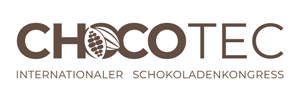Speakers
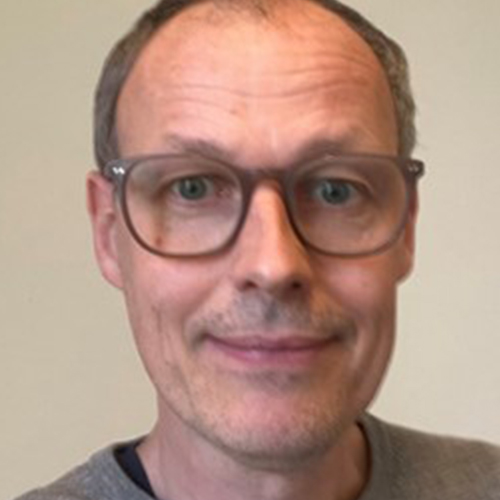
Dr. Morten Daugaard Andersen
AAK Denmark, DK
Die pflanzlichen Öle und Fette für das Segment der Süßwarenfüllungen sind die vielfältigsten unter den Süßwarenfettkategorien. Eine breite Palette an pflanzlichen Rohstoffen und die Nutzung der gesamten Palette an Modifizierungsverfahren für pflanzliche Öle und Fette ermöglichen es den Anbietern von Süßwarenfetten, den Süßwarenherstellern Füllfette mit einer Vielzahl von Wertvorschlägen anzubieten. Funktionelle Eigenschaften in den Bereichen verlängerte Haltbarkeit, Belüftung (niedrige Dichte, hohes Volumen), hohe Kakao- und Nussöltoleranz und kühl schmelzende Sensation bei gleichzeitiger Beibehaltung der nicht hydrierten, nicht transformierten „Clean Label“-Herkunft sind für die Süßwarenindustrie seit Jahren verfügbar.
Dieser Vortrag konzentriert sich auf die kühlschmelzenden Füllungsfette, die auf einem hohen Gehalt an Palm-Mid-Fraktionen (PMF) basieren, einer Fraktion von Palmöl, die reich an POP-Triglyceriden ist. Um das steilschmelzende Kühlempfinden zu erreichen, ist es wichtig, die Füllung in einer Temperiereinheit auf der Produktionslinie vorzukristallisieren. Aufgrund der Triglyceridzusammensetzung der Füllung sind zum Vorkristallisieren der Füllung niedrigere Temperaturen in den Zonen der Temperiereinheit erforderlich als beim Temperieren einer Schokolade. Daher verlässt die vorkristallisierte Füllung die Temperiereinheit mit einer unangenehm niedrigen Temperatur, was die anschließende Handhabung der Füllung aufgrund des schnellen Aufbaus von Viskosität zu einer Herausforderung macht. Dies gilt insbesondere für Füllungsrezepturen auf Haselnuss- und Milchbasis.
Neue Erkenntnisse darüber, wie AAK diese Herausforderung durch Optimierungen der Triglyceridzusammensetzung des pflanzlichen Füllungsfetts angegangen ist, werden im Mittelpunkt des Vortrags stehen.
Die Fettzusammensetzung ist der König in fettkontinuierlichen Süßwaren!
Seit seinem Eintritt bei AAK AB im Jahr 2007 konzentriert sich Mortens Arbeit auf die Verbesserung des Verständnisses des Dreiecksverhältnisses zwischen der Fettphase, der Leistung in der Süßwarenproduktionslinie und den mikro- und makroskopischen Eigenschaften der Süßwarenanwendung. Diese Erkenntnisse waren und sind die Eckpfeiler in unserem Bestreben, der Süßwarenindustrie einen Mehrwert zu bieten. Als globaler Entwickler für Süßwarenlösungen war Morten an der Entwicklung von nominierten und preisgekrönten Süßwarenlösungen beteiligt.

Dr. Johannes Burkard
ETH Zürich Laboratory of Food Process Engineering, CH
- Die additive Fertigung wurde als eine Technik identifiziert, mit der die Wahrnehmung von Süße in Lebensmitteln maßgeschneidert werden kann.
- Die erste Schicht (Geschmack und Textur) spielt eine entscheidende Rolle sowohl bei physikalischen als auch bei wahrnehmungsübergreifenden Effekten, was die Frage nach der Komplexität jenseits dieser Schicht aufwirft.
- Um den Geschmack zu optimieren, ohne die Schmackhaftigkeit zu beeinträchtigen, wurden periphere Biomarker identifiziert, um besser zu verstehen, wie der Geschmack kodiert wird.
- Die Pupillometrie hat sich als leistungsfähiges Instrument zur Analyse verschiedener Geschmackseigenschaften erwiesen, auch ohne Training oder Unterbrechung des Verhaltens.
- Es wurde festgestellt, dass ein spektraler Klassifikator die Wahrnehmung von Süße am besten kodiert und räumliche und zeitliche Klassifikatoren übertrifft.
- Es wurde festgestellt, dass die mit Süße assoziierten Frequenzen die physikalischen Eigenschaften der Stimuli auf der Zunge widerspiegeln.
Johannes hat eine Leidenschaft für Lebensmittel, seit er 2012 an der ETH anfing und 2019 für sein Doktorat zurückkehrte. Er sammelte Erfahrungen bei der Migros und einem Startup, das sich mit der Verkapselung von funktionalen Inhaltsstoffen beschäftigt. Im Rahmen seiner Promotion From Tailored Chocolate Structuring with Additive Manufacturing to Sensory Perception arbeitete er mit mehreren Universitäten und Industriepartnern zusammen. Er untersuchte sensorische und neuronale Eigenschaften und rekonstruierte Verhaltensdaten von über 300 Teilnehmern, was zu mehreren Publikationen führte.
Seit Juli 2024 ist Johannes als CTO der CHoNova AG tätig und leitet Projekte, akquiriert Kunden und schreibt Förderanträge mit Fokus auf die Schweizer Schokoladenindustrie. Er implementiert und verbessert die Technologie und bietet Schulungen und Support für Kunden an.

Daniel Brötz
Winkler und Dünnebier Süßwarenmaschinen GmbH, DE
Engagement für digitale Lösungen in der Süßwarenproduktion
Seit 2012 bei WDS, setzt sich Daniel Brötz engagiert für die Weiterentwicklung digitaler Prozesse im Servicebereich ein. Er hat ein zuverlässiges Hotline-Team mit 24/7-Betreuung aufgebaut und digitale Service-Angebote erfolgreich eingeführt. Mit der Gründung und Leitung eines dedizierten Digitalisierungsteams treibt er innovative Ansätze in der Branche voran.
Sein Schwerpunkt liegt auf der internen und externen Digitalisierung, immer mit dem Ziel, neue Technologien sinnvoll in der Süßwarenproduktion einzusetzen und Prozesse zu verbessern. Mit seinem Blick für praxisnahe Innovationen trägt er zur kontinuierlichen Weiterentwicklung und Effizienzsteigerung in der Süßwarenproduktion bei.
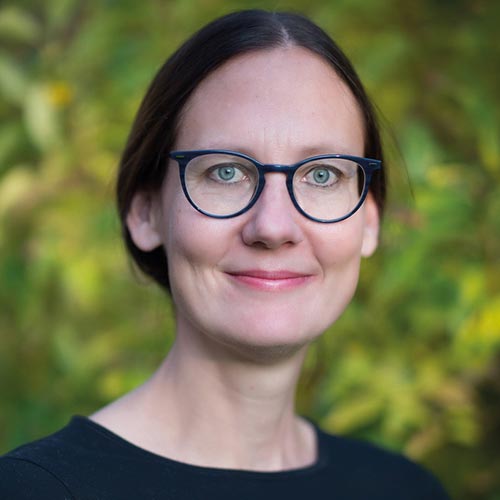
Ing. Karin Chatelain
Zurich University of Applied Science (ZHAW), CH
Sensorische Analysen spielen innerhalb des gesamten Wertschöpfungsnetzwerkes von Kakao- und Schokolade eine bedeutende Rolle. Dies trifft sowohl für die Kontrolle und Gewährleistung einer definierten Produktqualität zu wie auch für die Erfüllung der Konsumentenbedürfnisse. Um zuverlässige sensorische Analysen gewährleisten zu können, wird ein systematischer Ansatz benötigt, bei dem einheitliche Methoden und Kriterien für die Analysen angewendet werden. Eignungsprüfung können diesen Prozess unterstützen und einen wertvollen Beitrag zu zuverlässigen und präzisen sensorischen Analysen leisten. In diesem Vortrag wird anhand von konkreten Projektbeispielen erläutert, wie Eignungsprüfungen, sowohl in Europa als auch in den Ursprungsländern, sensorische Qualitätsprüfungen von Kakao- und Schokoladenprodukten unterstützen können. Es werden dabei sowohl Chancen als auch Limitationen aufgezeigt.
Karin Chatelain arbeitet als Lebensmittel-Sensorikerin an der Zürcher Hochschule für Angewandte Wissenschaften (ZHAW) in der Schweiz. Im Rahmen ihrer Forschungstätigkeit an der ZHAW hat sie sich auf den Bereich der Wertschöpfungsnetzwerke von Kakao und Schokolade und die sensorische Analyse der entsprechenden Produkte spezialisiert. Darüber hinaus entwickelt und implementiert sie professionelle Trainingsprogramme zur sensorischen Bewertung von Kakaobohnenqualität, Likör und Schokolade in der Schweiz und in den Herkunftsländern. Mit all ihren Aktivitäten möchte Karin zu einem besseren Verständnis der Bedeutung der organoleptischen Qualität von Kakao- und Schokoladenprodukten beitragen.
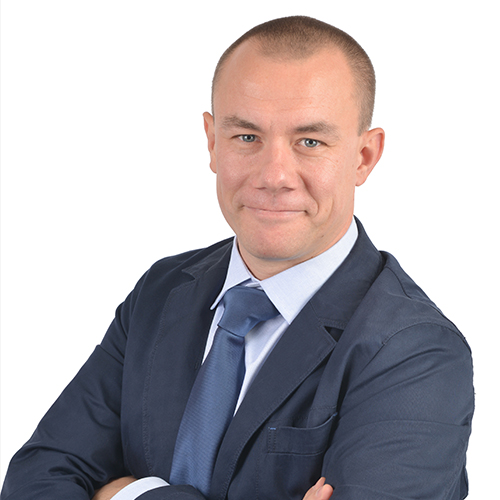
David Deblauwe
Puratos NV, BE
In der heutigen Zeit, in der Nachhaltigkeit das Schlagwort in der Schokoladenbranche ist, tragen die zahlreichen Anstrengungen der Branche nicht wesentlich dazu bei, das Leben der Kakaobauern zu verbessern.
Mit Cacao-Trace, Puratos’ eigenem Programm für nachhaltigen Kakao, konzentrieren wir uns auf die Qualität vom Baum bis zur Schokolade, um in der gesamten Lieferkette bis hin zum Verbraucher Werte zu schaffen. Cacao-Trace ist ein 360-Grad-Ansatz, bei dem alle Beteiligten in der Wertschöpfungskette profitieren, indem wir uns der Schaffung von Werten widmen, um einen großartigen Geschmack zu liefern. Indem wir Gutes tun, profitieren unsere Cacao-Trace-Bauern von dem Wert, den sie schaffen.
- David begann schon in jungen Jahren in einer handwerklichen Bäckerei in seinem Heimatdorf zu arbeiten. Als er seine Leidenschaft für das Backen entdeckte, besuchte er die Bäckereischule in Brügge und machte 1994 seinen Abschluss. Zusammen mit seinen Klassenkameraden gründete er ein Unternehmen namens ‘Criollo’, und sein erster Job war in einer Schokoladenfabrik.
- Im Jahr 2003 machte er seinen Abschluss als Lebensmittelwissenschaftler an der GroepT- Leuven.
- Er kam 1995 zu Puratos und hat seither verschiedene Positionen bekleidet. Er arbeitete hauptsächlich mit Industriekunden zusammen und sammelte viel Erfahrung mit Enzymen, Emulgatoren und industriellen Backprozessen. Im Jahr 2007 wechselte er in die Welt der Sauerteige und zog 2009 in die USA, um das Sauerteiggeschäft von Puratos hauptsächlich in den USA, Kanada und Mexiko zu entwickeln.
- Nach seiner Rückkehr nach Belgien im Jahr 2018 übernahm er die Rolle des Produktmanagers Chocolanté, um die Marke und die Strategie weltweit aufzubauen.
- Heute ist er als Sr. Product Manager Chocolate für die Geschäftsentwicklung sowohl von Belcolade, der echten belgischen Schokolade, als auch von Chocolanté verantwortlich. Er genießt es, seine Energie und sein Wissen über nachhaltigen Kakao und Schokolade mit den Menschen in seinem Umfeld zu teilen.
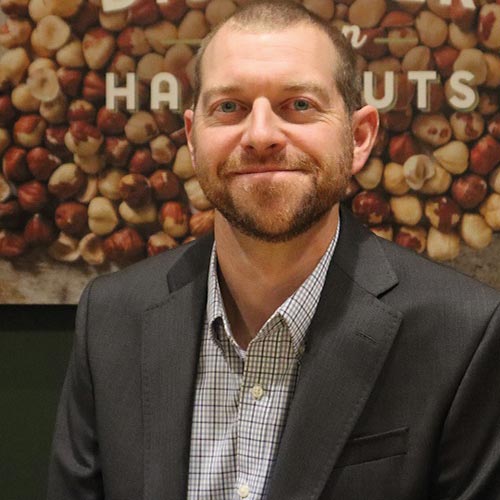
Sean Denfeld
Denfeld Packing, Inc., USA
Die Produktion in Oregon macht 99 % des gesamten Haselnussangebots der USA aus. Einst eine kleine Nischenindustrie, hat sich diese Anbauregion zu einem wichtigen Herkunftsort für Hersteller und Kunden in aller Welt entwickelt. Ein hohes Maß an Mechanisierung und eine ausgeklügelte Lieferkette bilden die Grundlage für eine gleichbleibende und zuverlässige Qualität. Neue Sorten, die speziell ausgewählt wurden, um exzellente Kerne zu liefern, werden jetzt in vollem Umfang angebaut und sorgen für ein wachsendes Angebot an Haselnüssen, die perfekt zur Unterstützung der Schokoladenindustrie geeignet sind.
In den letzten 20 Jahren hat sich Sean Denfeld auf die Entwicklung und Leitung einer Reihe von Familienunternehmen konzentriert, die sich hauptsächlich auf Oregon-Haselnüsse konzentrieren. Er leitet den Familienbetrieb in sechster Generation gemeinsam mit seinem Vater Paul und hat das Beschaffungsunternehmen Denfeld Nut aufgebaut, das mit über 140 anderen Haselnussbauern in Oregon zusammenarbeitet, um deren hochwertige Ernte zu verarbeiten und zu vermarkten. Ergänzend zum Verarbeitungsgeschäft hat Sean auch kommerziell erhältliche Reinigungs- und Trocknungsanlagen speziell für Haselnüsse mitentwickelt. Schließlich hat die Familie Denfeld in Zusammenarbeit mit der australischen Familie Waring Laurel Foods aufgebaut und entwickelt, einen Hersteller von Nussspezialitäten, der sich auf die Entwicklung einer kompletten Produktpalette für Industrie und Einzelhandel mit Haselnüssen konzentriert. Sean Denfeld sitzt derzeit im Hazelnut Marketing Board, ist Vorstandsmitglied der Peanut and Tree Nut Processors Association (PTNPA) und war in der Vergangenheit in der Nut Growers Society und der Oregon Hazelnut Commission tätig.
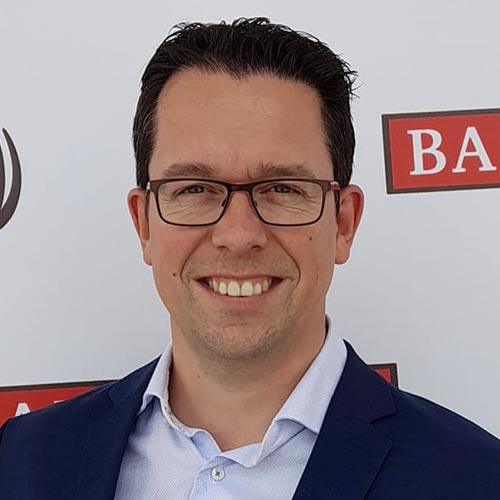
Dr. Frederic Depypere
Barry Callebaut Belgium N.V., BE
Frederic Depypere mit Sitz in Belgien arbeitet seit 2012 für die Barry Callebaut-Gruppe, wo er verschiedene F&E-Funktionen innehatte. Er begann seine industrielle Karriere im globalen F&E-Team, wo er an der Entwicklung bahnbrechender Schokoladenlösungen beteiligt war. Nach 6 Jahren wechselte er in eine geschäftsorientierte Rolle, in der er weltweit für das Produktportfolio des Gourmetgeschäfts von BC verantwortlich war. Seit 2 Jahren leitet er das europäische F&E-Team für technische Dienstleistungen, eine Funktion, die vor kurzem in eine globale Funktion umgewandelt wurde. Bevor er zu Barry Callebaut kam, erwarb Frédéric einen Master (2001) und einen Ph.D. (Doktor der Philosophie) (2005) in Bioscience Engineering an der Universität Gent. Zwischen 2005 und 2012 baute er eine akademische Karriere als Dozent und Post-Doc an der Universität Gent auf. Er war maßgeblich an der Entwicklung von Cacaolab (°2009) beteiligt, um Unternehmen der Süßwarenindustrie zu beraten und zu schulen. Vor allem aber ist Frédéric ein leidenschaftlicher Schokoladenliebhaber.
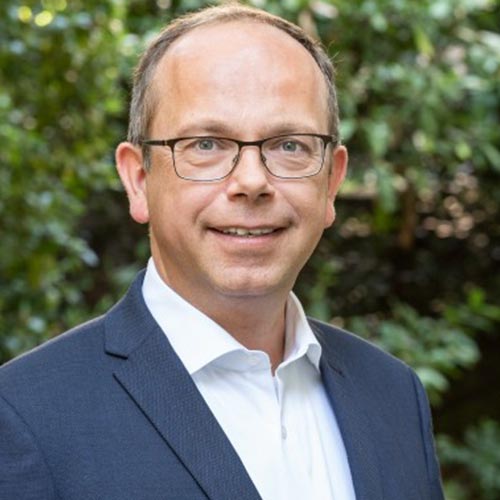
Dr. Torben Erbrath
BDSI Bundesverband der Deutschen Süßwarenindustrie e.V. , DE
Seit dem 29. Juni 2023 ist die Europäische Verordnung zur Entwaldung (EUDR) in Kraft. Betreiber und Händler müssen die Verordnung ab dem 30. Dezember 2024 umsetzen. Was sind die Anforderungen? Wie werden sie in der Lieferkette und insbesondere in der Schokoladenindustrie umgesetzt?
Dr. Torben Erbrath promovierte in Rechtswissenschaften an der Universität zu Köln mit einer Dissertation über Umweltmanagement- und Umweltbetriebsprüfungssysteme (EMAS) und die Norm ISO 14001. Im Jahr 2000 trat er dem Bundesverband der Deutschen Süßwarenindustrie (BDSI) bei. Seit 2009 ist er Leiter des Fachbereichs Schokolade und Kakao und verantwortlich für nachhaltige Lieferketten und Rohstoffe. Er vertritt die deutsche Schokoladenindustrie in verschiedenen Organisationen. Er ist Vorstandsmitglied der Initiative Nachhaltiger Kakao (GISCO) und Mitglied der Deutschen Stiftung Kakao und Schokolade.
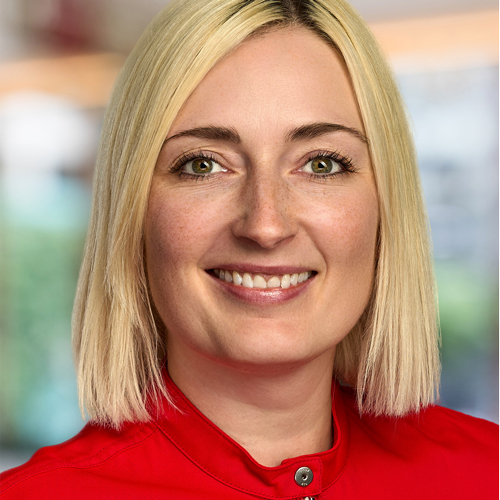
Romy Fengler
Fraunhofer IVV
Die Migration aus faserbasierten Verpackungsmaterialien ist ein wichtiges Thema, insbesondere im Hinblick auf den Schutz des Füllguts. Faserbasierte Verpackungsmaterialien wie Papier und Karton werden häufig für Lebensmittel und andere empfindliche Produkte verwendet. Die Bedeutung der Migrationsmessung liegt in der möglichen Freisetzung von Kontaminanten, die im Verpackungsmaterial enthalten sind. Rohstoffe, aber auch ergänzende Medien zur Herstellung der Verpackung (Klebstoffe, Farbstoffe, Beschichtungen) können Stoffe enthalten, die bei Überschreitung von Grenzwerten ein Gesundheitsrisiko darstellen. Diese können absichtlich (z. B. durch Additive) oder unabsichtlich (z. B. durch Rückstände) in die Verpackung eingebracht worden sein. Die Kontrolle der Migration ist entscheidend, um die Sicherheit der Produkte zu gewährleisten. Durch strenge Vorschriften und Tests kann sichergestellt werden, dass Verpackungen den geforderten Standards entsprechen und das Risiko einer Kontamination minimiert wird.
Neben der Einführung in die Thematik werden auch Forschungsprojekte des Fraunhofer IVV vorgestellt, die sich mit der Migration durch faserbasierte Verpackungen aber auch in Lebensmittel beschäftigen. Dabei wird auf die Fragestellungen und die Durchführung der Projekte eingegangen. Die Möglichkeiten der Modellierung werden erläutert und (erste) Ergebnisse vorgestellt.
Romy Fengler studierte Lebensmitteltechnologie an der TU Dresden und promoviert an der TU München. Nach dem Studium ging sie zum Fraunhofer Institut für Verfahrenstechnik und Verpackung in Freising und ist seitdem in der Abteilung Produktsicherheit und Analytik mit dem Schwerpunkt faserbasierte Verpackungsmaterialien tätig.
Ihre Forschungsschwerpunkte liegen im Bereich der Lebensmittelsicherheit mit dem Fokus auf Verunreinigungen und Kontaminanten. Dabei werden vor allem Verpackungen, aber auch Rohstoffe, Verarbeitungshilfsstoffe und die Lebensmittelseite betrachtet. Ihre Expertise liegt vor allem im Bereich der Mineralölanalytik.
Sie ist Mitglied im bdvi e.V. – Das Verpackungsnetzwerk und seit 2021 nebenberuflich als Dozentin im Bereich Verpackungstechnik tätig.
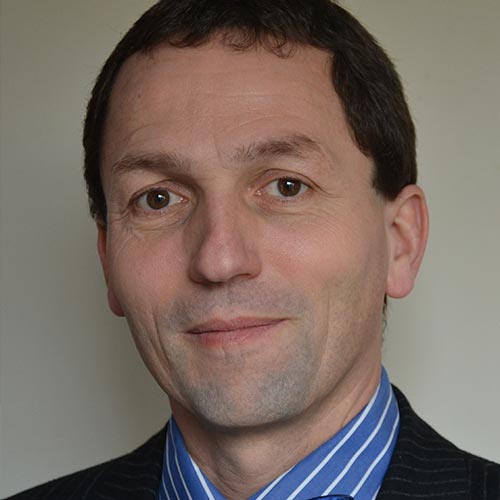
Prof. Eckhard Flöter
Technical University Berlin, DE
Aug. 2011 – heute
Lehrstuhl Lebensmittelverfahrenstechnik
Institut für Lebensmitteltechnologie und Lebensmittelchemie
Technische Universität Berlin (Deutschland)
Leiter des Berliner Zuckerinstituts
Forschungsinteressen:
Lebensmittelprozesse, Phasenübergänge in Lebensmitteln, Kristallisation, Strukturtechnik
Hauptsubstrate: Zucker, Fette und Öle, Stärke
Okt. 1996 – Dez. 2011
Unilever F&E (hauptsächlich in den Niederlanden)
Verschiedene Positionen, z.B.:
Leiter Fettmischungsformulierung
Leiter der Abteilung Fetttechnologie
Leitender Wissenschaftler
Technischer Schwerpunkt: Fette und Öle
Okt. 2005 – Sept. 2005
Unilever Technology Ventures (USA)
Investitionsanalyst
Aug. 1992 – Aug. 1996
Doktorand TU Delft (Niederlande)
Labor für angewandte Thermodynamik und Phasengleichgewichte
Dissertation ‘Hyperbare Lagerstättenflüssigkeiten’
Okt. 1986 – Mai 1992
Chemieingenieurwesen (Verfahrenstechnik) TU Berlin (Deutschland)
Abschlussarbeit „Vergleichende Studie über Methoden zur Berechnung kalorischer Eigenschaften“
Ergebnisse
Mehr als 100 begutachtete Veröffentlichungen und Buchkapitel
Mehr als 40 Patentfamilien
Sonstiges
Mitglied des Dekanats, FAK III, TU Berlin
Geschäftsführender Herausgeber European Journal Lipid Science and Technology
Beirat Wissenschaftlicher Beirat o.ä.
- VDI/Prozessnet LVT
- Deutsche Föderation für Lipidwissenschaften
- Europäische Föderation für Lipidwissenschaft und -technologie
- Europäische Gesellschaft für Zuckertechnologie
- Forschungskreis der Ernährungsindustrie
- Lebensmittelverband
- Programmbeirat Malaysian Palm Oil Board
- Stärkefachausschuss
Regelmäßiges Mitglied des Wissenschaftlichen Ausschusses des EuroFedLipid-Kongresses
Regelmäßiges Mitglied des Wissenschaftlichen Ausschusses des AOCS-Kongresses
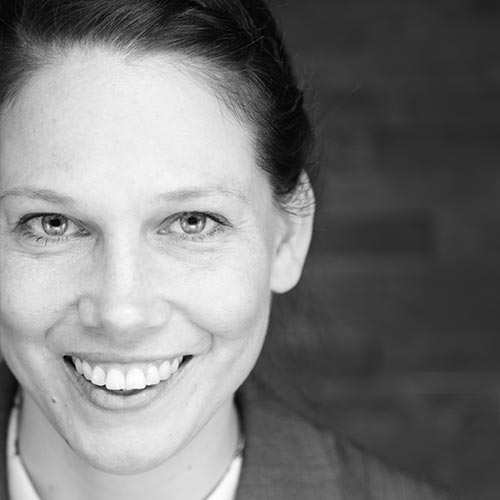
Julia Gisewski
BDSI-Bundesverband der Deutschen Süßwarenindustrie e.V., DE
Julia Gisewski, Juristin, Studium der Rechtswissenschaften in Münster/Westf. und Paris X- Nanterre, Aufbaustudium am Europa-Institut der Universität des Saarlandes (LLM. in European Integration).
Seit 2011 Leiterin des Brüsseler Büros und seit 2022 stellvertretende Geschäftsführerin des Bundesverbandes der Deutschen Süßwarenindustrie (BDSI e.V.). Dort ist sie zuständig für die Beobachtung von EU-Themen und die Interessenvertretung des BDSI auf europäischer Ebene sowie für das Thema Verpackungen im Sinne einer Kreislaufwirtschaft und die Produktgruppe herzhafte Snacks.
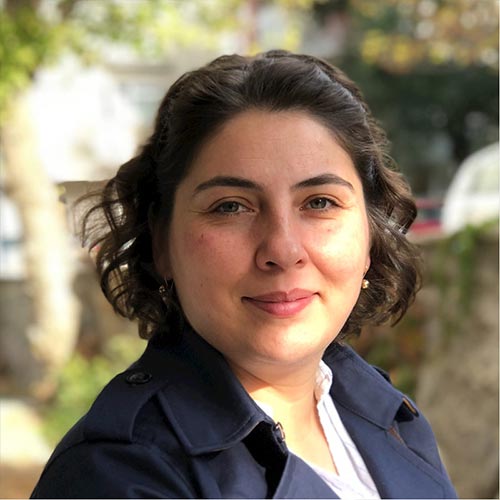
Ayşe K. GOLOĞLU
Yavuz Gıda San. ve Tic. A.S., TR
Nachhaltigkeitsprogramm der Firma Yavuz
- Rückverfolgbarkeit.
- Nachhaltige Landwirtschaft
- Nachhaltigkeit für die sozialen Aspekte bei der Haselnusslandwirtschaft
- CO2
- Umwelt
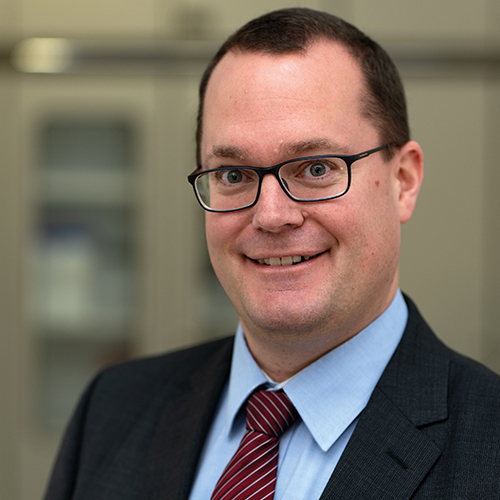
Dr. Frank Heckel
Lebensmittelchemisches Institut (LCI) des Bundesverbandes der Deutschen Süßwarenindustrie e.V., DE
Nach der Neubewertung von BPA durch die Europäische Behörde für Lebensmittelsicherheit (EFSA) hat die EU-Kommission ein Verbot dieser Substanz in Materialien mit Lebensmittelkontakt auf den Weg gebracht, von dem auch Schokoladenformen aus Polycarbonat betroffen sind. Gemeinsam mit den führenden Formenherstellern haben der BDSI und die LCI den damit verbundenen Konsultationsprozess begleitet und zwei Stellungnahmen abgegeben. Aufgrund von Gerüchten über die Verfügbarkeit von BPA-freien Formen und mangelnder Unterstützung durch die Mitgliedsstaaten wurde der Antrag auf eine Ausnahmeregelung für die Formen nicht angenommen. Es ist jedoch möglich, die EU-Kommission weiterhin mit faktenbasierten Beiträgen zu versorgen. Es liegt nun an der Industrie, diese Fakten zu sammeln, um Erkenntnisse über die Eignung von BPA-freien Kunststoffen in dieser speziellen Anwendung zu gewinnen. Die Entwicklung des Verbotsprozesses und der aktuelle Stand werden in der Präsentation dargestellt.
Dr. Frank Heckel ist staatlich geprüfter Lebensmittelchemiker und promovierte an der Universität Würzburg. Nach einer kurzen Zeit in einem Handelslabor war er 12 Jahre lang bei einem namhaften Verpackungshersteller für die Bereiche Migrationsanalytik, Sicherheit und Qualität verantwortlich. Seit 2018 arbeitet er für den Bundesverband der Deutschen Süßwarenindustrie und ist seit 2019 Leiter des dortigen Lebensmittelchemischen Instituts (LCI).
Zu seinen Forschungsgebieten gehören die Lebensmittelsicherheit mit dem Fokus auf (Prozess-)Kontaminanten, aber auch die Lebensmittelqualität, immer mit besonderem Augenmerk auf eine zuverlässige und valide instrumentelle Analytik. In Bezug auf Lebensmittelmatrices beschäftigt er sich hauptsächlich mit Kakao, Schokolade, feinen Backwaren, Eiscreme, Süßwaren und herzhaften Snacks.
Er ist Mitglied im Vorstand der Deutschen Kakaostiftung, der BfR-Kommission für Kontaminanten in der Lebensmittelkette und im Vorstand der Lebensmittelchemischen Gesellschaft. In seiner Position als Direktor von LCI ist er Mitglied mehrerer wissenschaftlicher Beiräte und Arbeitsgruppen in Deutschland und auf europäischer Verbandsebene, insbesondere von FoodDrinkEurope, CAOBISCO (Verband der europäischen Schokoladen-, Keks- und Süßwarenindustrie), ESA (European Snacks Association) und der Food Federation Germany.
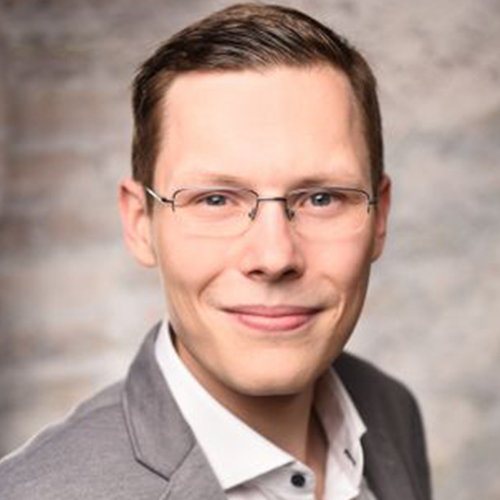
Tobias Jaeuthe
QVISIONS GmbH, DE
-
Tägliche Herausforderungen des Cut-Tests für kakaoverarbeitende Unternehmen
- Unser Ansatz der softwarebasierten Auswertung
- Demonstration der praktischen Anwendung und Präsentation von Kundenfallbeispielen
- Gelerntes
- Grenzen des Cut-Tests
- Einhaltung von Sortierstandards
- Unterschiede in der Anwendung des Cut-Tests zwischen Unternehmen
- Künftige Arbeit
Tobias Jaeuthe studierte Informatik an der Universität Potsdam. Seit 2016 ist er als IT-Unternehmer im Bereich maschinelles Lernen und Computer Vision tätig. Zuletzt arbeitete er an Wunderkennungssystemen im medizinischen Bereich. Die Idee zu einer computergestützten Auswertung der Schnittprüfung entstand bei einem privaten Besuch im Chocoversum in Hamburg. Heute berichtet er über die Praxiserfahrungen zum Thema Digitalisierte Evaluierung der Schnittprobe in der Qualitätskontrolle von Kakao.
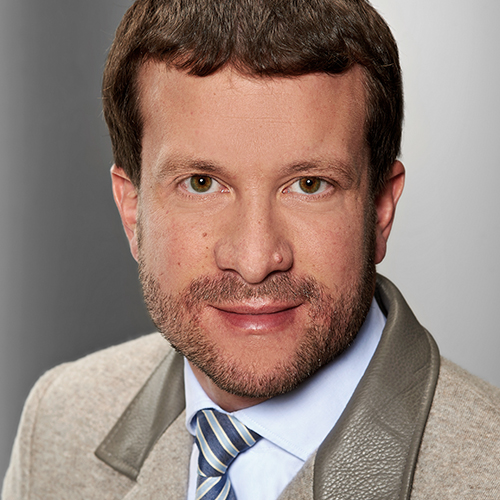
Dr. Daniel Kadow
August STORCK KG, DE
Vom Pflanzmaterial und die klimatischen Bedingungen im Anbau, über Fermentation und Trocknung bis hin zu Röstung und Vermahlung, die Kakaoverarbeitungskette ist lang und komplex. Entsprechend groß ist die Zahl der Einflussfaktoren, von denen die Aroma- und Geschmacksentwicklung abhängig ist. Die Forschung hat hierzu in den vergangenen Jahrzehnten eine Fülle von Informationen zusammengetragen. In meinem Vortrag mache ich einen Vorschlag wie diese Informationen gebündelt werden können, welche Anwendungsmöglichkeiten, wie z.B. das Erzielen spezifischer Aromaprofile, sich ableiten lassen und welche Wissenslücken bestehen.
Daniel Kadow hat im Fachbereich Biologie an der Universität Hamburg mit dem Schwerpunkt tropische Nutzpflanzen promoviert. Die Forschungsarbeiten zu Kakao führten ihn an die Université de Yaoundé, das Cocoa Research Centre in Trinidad, die University of British Columbia sowie nach Ecuador, Peru, Kolumbien und Costa Rica. Seit 2013 ist er bei der August STORCK KG in der Forschung und Entwicklung Schokoladen für die Kakaoforschung zuständig. Daniel Kadow ist außerdem der amtierende Vorsitzende des Joint Cocoa Research Fund von CAOBISCO und ECA und Programmdirektor des Runden Tisches Kakao Hamburg.

Christopher Keim
Food Brewer AG
Eine groß angelegte Produktion von nachhaltigem und natürlichem Kakao ist wichtig, um die steigende Nachfrage nach Schokolade in der Zukunft zu decken und die Versorgung langfristig zu sichern. In diesem Vortrag erkläre ich, wie Food Brewer die Versorgung mit hochwertigem Kakao sicherstellt und führe Sie durch die Etablierung einer Kakao-Zelllinie bis hin zur Produktion. Der Schwerpunkt liegt dabei auf der Skalierung des Produktionsprozesses in Brauerei Fermentern, dem Lebensmittelzulassungsverfahren und der Produktappliaktion.
Ich verfüge über mehr als 12 Jahre Erfahrung in der Biotechnologie, davon sechs Jahre im pharmazeutischen Bereich, wo ich in der frühen und späten präklinischen Forschung tätig war, mit Schwerpunkt auf Zellbiologie, Onkologie, Bioinformatik und Studien zur Wirkungsweise (MOA). Mein Weg hat mich tief in die Welt der Start-ups geführt, wo ich die Gelegenheit hatte, Unternehmen in der Gründungsphase von der Seed- bis zur Series-B-Finanzierungsrunde zu begleiten. Während meiner Zeit bei Roche habe ich Automatisierungsplattformen entwickelt, um den täglichen Laborbetrieb zu optimieren und die Prozesse von der Forschung bis zur Produktion effizienter zu gestalten. Weitere Studien in Bioinformatik mit Schwerpunkt auf großen genomischen Datensätzen halfen mir, starke Fähigkeiten in AI/ML zu entwickeln. Heute arbeite ich als Head of Process Automation & AI beim Foodtech-Unternehmen Food Brewer in Zürich, Schweiz, wo ich aktiv Digitalisierungs-, Automatisierungs- und AI/ML-Technologien anwende, um Innovationen in unserem Pioniermarkt voranzutreiben und eine nahtlose Kontrolle über die gesamte Skalierung der Produktion zu gewährleisten.
Food Brewer hat es sich zur Aufgabe gemacht, die Nahrungsmittelversorgung der Welt zu unterstützen, indem es vor Ort Pflanzenzellen in Bioreaktoren züchtet, wobei der Schwerpunkt auf Kakao und Kaffee liegt, und so den Planeten vor nicht nachhaltiger Landwirtschaft und Abholzung zu bewahren. Die zelluläre Landwirtschaft kann eine wertvolle und zeitgemäße Lösung für den Rückgang der Anbauflächen, die Abnahme der Ernteerträge und die verheerenden Pflanzenkrankheiten darstellen. Zellulär gezüchteter Kakao und Kaffee bietet eine innovative Technologie der Biomasse- oder Produktbildung und ist daher direkt mit dem Anbau des wesentlichen Pflanzenteils vergleichbar. Im Prinzip wird beim zellulären Anbau von Kakao nur das Pflanzengewebe vermehrt, das für den Verzehr verwendet wird, und die ungeniessbaren Teile (Blätter, Wurzeln, Stängel usw.) ausgelassen. Die eindeutigen Vorteile dieser Technologie sind eine vollständig geschlossene und kontrollierte Produktion, die eine gleichbleibende Qualität ohne Verunreinigungen ermöglicht, ein minimaler Ressourcenbedarf, ein geringerer Produktionsfußabdruck, weniger Emissionen, keine Abholzung von Wäldern zur Erschließung von Ackerland, saisonale Unabhängigkeit sowie kein Einsatz von Pestiziden. Die Skalierung der Produktion in der zellulären Landwirtschaft ist von entscheidender Bedeutung, um relevante Produktmengen für die Industrie zu erreichen und Kosten zu senken. Eine industrielle Produktion ist unerlässlich, um die Marktnachfrage zu befriedigen und eine qualitativ hochwertige Produktversorgung zu gewährleisten welche die Einbrüche in der globalen Versorgungskette der Ressourcen aufgrund des Klimawandels, nicht nachhaltiger Anbaumethoden, Pflanzenkrankheiten, Bürgerkriegen und wachsender Bevölkerungszahlen ausgleichen kann.
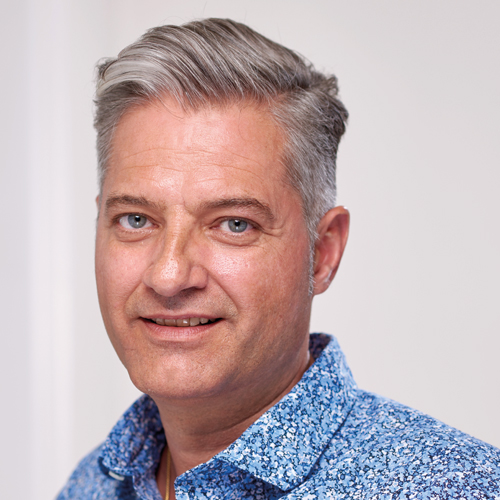
Roland Laux
RE-NUT AG, CH
Die RE-NUT-Technologie ist in der Lage, ungeschälte Nüsse („in-shell“) zu verarbeiten, wodurch sich die Ausbeute der resultierenden Zutaten Nussmehl, -paste und -getränke verdoppelt. Zusätzlich zu den bekannten Bestandteilen und Vorteilen der Nusskerne enthalten diese neuen Nusszutaten alle wertvollen Ballaststoffe aus den Nussschalen. Die Präsentation stellt diese patentierte Zero-Waste-Technologie und ihr großes Innovationspotenzial für die Schokoladenindustrie vor.
Nach dem Master-Abschluss in BWL an der Universität St. Gallen verkaufte Roland 6 Jahre lang Glacé in Chile und in den USA.
Seine Idee, für das Coating eines Glacés die Schokolade der Premiummarke Sahne Nuss zu verwenden, hat in Chile seit 1997 und bis heute zu Millionenumsätzen geführt. Damit war sein Erfindergeist geweckt.
Zurück in der Schweiz gründete Roland 3 Start-ups. Während es die 2 im Food-Bereich noch gibt, hat er den Vorstoß in die Spontanreise-Branche mit dem Konkurs teuer bezahlt.
Roland ist Miterfinder von weltweit patentierten Herstellungsverfahren für Schokolade (verkauft an Oro de Cacao), Cold-Brew Coffee, Kräuter & Gewürze und Nüsse. Sie alle holen mehr vom Guten aus den Rohstoffen heraus.
Seit 2022 ist Roland CEO und Co-Founder von RE-NUT. Das Schweizer FoodTec-Startup entwickelt, patentiert und vermarktet innovative Verfahren für die Verarbeitung von ungeschälten Nüssen, was zu einer Verdoppelung der Ausbeute in Form von Nussmehl, -pasten und -milch führt.
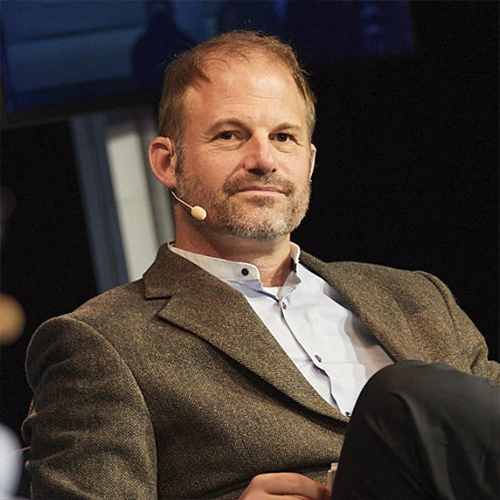
Dr. Tobias Lohmüller
Probat Foods
Wesentlich für die gesetzlich geforderte und gewünschte Qualität der Kakaopulver- und Schokoladenproduktion ist der Kakaoentschalungsprozess als CCP.
Beschreibung des Kakaobrechens/Entschalungsprozesses und was getan werden kann, um die geforderte Qualität während des Prozesses zu verbessern und zu erhalten, auch wenn die Qualität der verarbeiteten Bohnen phasenweise schwankt
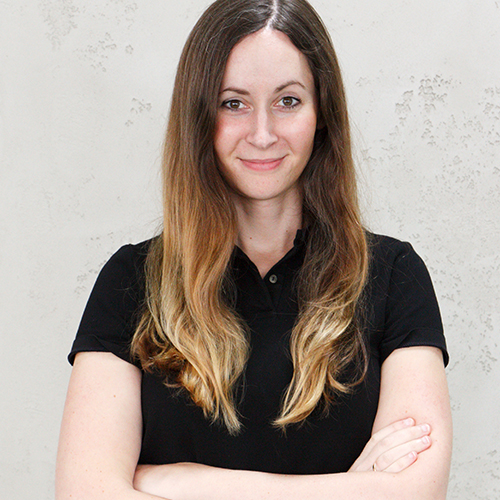
Dr. Sara Marquardt
Planet A Foods GmbH, DE
Planet A Foods ist ein B2B-Zutatenlieferant für die Süßwarenindustrie, der kakaofreie Kakao- und Schokoladenalternativen unter dem Namen ChoViva herstellt.
ChoViva wird aus Hafer und Sonnenblumenkernen hergestellt, wobei ein ähnlicher Produktionsprozess wie bei herkömmlichem Kakao und Schokolade angewandt wird: Fermentation, Rösten und Conchieren. Das neuartige Herstellungsverfahren von PAF ist nachhaltiger (90 % weniger CO2) und verwendet regionale und lokale Zutaten anstelle von Kakao.
Seit September 2023 wird ChoViva in einer Vielzahl von Produkten eingesetzt, von Griesson-de-Beukalaers Cereola über Peter Köllns Müslis bis hin zu Eigenmarkenprodukten von REWE, Penny usw.
Dr. Sara Marquart ist die CTO und Mitbegründerin von Planet A Foods.
Zuvor war Dr. Marquart Leiterin der Geschmacksabteilung am „Coffee Excellence Center“ der Zürcher Hochschule für Angewandte Wissenschaften, wo sie die Forschung und Entwicklung für das in Seattle ansässige Kaffee-Startup Atomo Coffee leitete. Davor war sie Chefkuratorin der Sonder- und Wanderausstellung „Kosmos Kaffee“ im Deutschen Museum in Deutschland.
Dr. Marquart promovierte in Lebensmittelchemie an der Technischen Universität München.
Sie ist die Autorin von zwei Büchern und zahlreichen Veröffentlichungen.
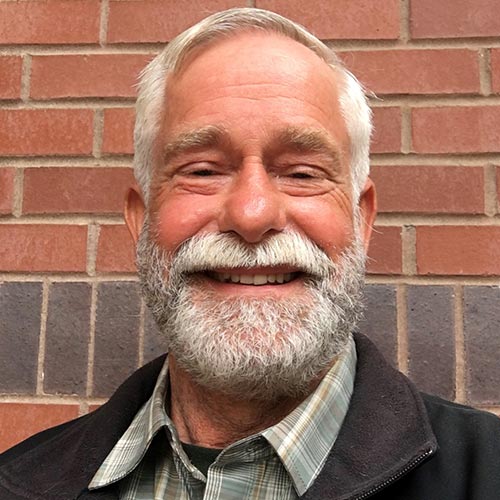
Prof. Shawn Mehlenbacher
Oregon State University, USA
Die genetische Verbesserung der Haselnuss wird an der Oregon State University (OSU) seit 1969 betrieben. Die ursprünglichen Eltern waren wichtige Kultursorten aus Westeuropa und der Türkei. Durch die Einfuhr von Saatgut und Edelreisern wurde die genetische Basis des Züchtungsprogramms erheblich verbreitert. Es wurden Tausende von kontrollierten Bestäubungen durchgeführt und mehr als 200 000 Setzlinge ins Feld gepflanzt und ausgewertet. Die Resistenz gegen die Kraut- und Knollenfäule (Eastern Filbert Blight, EFB) ist ein wichtiges Ziel des Programms. Die jüngsten Freisetzungen tragen ein dominantes Allel für die Resistenz von ‘Gasaway’. Weitere wichtige Resistenzgene sowie die quantitative Resistenz wurden in der Züchtung eingesetzt. Von den bisher 28 Freisetzungen hat ‘Jefferson’ große Nüsse und wurde für den In-Shell-Markt freigegeben. Yamhill“, ‚Wepster‘, ‚McDonald‘, ‚PollyO‘, ‚Dorris‘, ‚Sacajawea‘ und ‚Tonda Pacifica‘ sind gut für den Kernmarkt geeignet. Obstgärten in Oregon und Chile sind zunehmend in der Lage, hochwertige Kerne für die Verwendung in Schokoladenprodukten zu liefern.
Shawn wuchs auf einer Familienfarm im Westen des Staates New York auf und erwarb seinen B.S. in Gartenbau an der Penn State University (1978) und seinen Ph.D. in Pflanzenzüchtung an der Cornell University (1982). Nach vier Jahren als Baumobstzüchter an der Rutgers University kam er 1986 an die Oregon State University, um das Haselnusszuchtprogramm zu leiten, wo die Resistenz gegen die Kraut- und Knollenfäule (Eastern Filbert Blight) ein wichtiges Ziel ist und 28 Sorten freigesetzt wurden, von denen einige in Oregon und Chile weit verbreitet sind und inzwischen auch in Europa erhältlich sind. Er lehrt Pflanzenzüchtung und hat 19 Doktoranden betreut. Zu seinem Netzwerk von Fachkollegen gehören ehemalige Gastprofessoren und studentische Praktikanten aus mehreren Ländern. Er leitete Reisen in die Türkei (1996), nach Chile (2012) und Georgien (2017). Er war Gastgeber des Internationalen Haselnusskongresses in den Jahren 2000 und 2022 und der Jahrestagung der NNGA in den Jahren 1991 und 2014. Seine Importe von Edelreisern und Samen erweiterten die Sammlungen des USDA und der OSU. Shawn ist Fellow der International Society for Horticultural Science und der American Society for Horticultural Science. Er ist der Präsident der Northern Nut Growers Association.
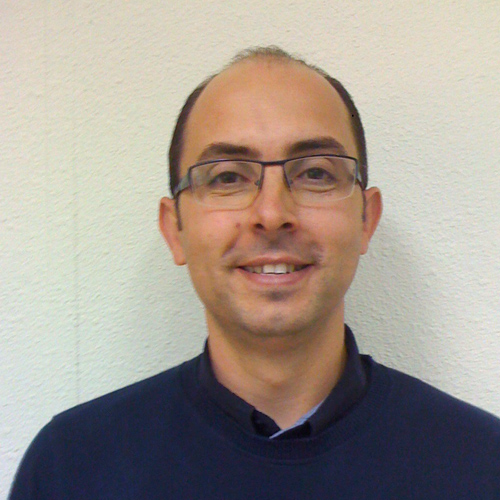
Dr. Jose Manuel Moreno Rojas
The Andalusian Institute of Agricultural, Fisheries, Agrifood and Organic Production Research and Training, ES
Der Vortrag fasst die Ergebnisse unserer Arbeiten zur Bewertung des flüchtigen Profils von ecuadorianischem Kakao aus Massen- und Edelkakaosorten während der traditionellen Fermentierung in Lorbeerholzkisten und die während der anaeroben und aeroben Fermentierungsschritte beobachteten Veränderungen sowie den Einfluss der Möglichkeit eines Vortrocknungsschritts während der Verarbeitung auf dem Bauernhof und die verschiedenen Optionen des abschließenden Trocknungsschritts zusammen.
- José Manuel Moreno Rojas, born in Cordoba, Spain (1977)
- Degree in chemistry (2000). Degree in Food Science and Technology (2005). Univ. Cordoba, Spain.
- MSc Chemistry. Herbicides analysis in olive oil. (2002)
- PhD University of Córdoba (2005). Applications of catalysis to Green Chemistry.
- Postdoctoral researcher (2005-2008) at the Joint Research Centre of the European Commission (Ispra, Italy). Main topic: Use of stable isotope ratios (IRMS) for food traceability and fight against fraud.
- 2008. Researcher at IFAPA and since 2018 Principal Researcher.
- 2012-2017. Head of the Department of Food Science and Technology.
- 2017-2022. Head of the Department of Food Science and Health.
- 2022-on. Head of the Department of Agroindustry and Food Quality.
- Since 2012, Head of the Laboratory for Stable Isotopes and Mass Spectrometry at IFAPA (Córdoba, Spain).
- Publications: 140 SCI publications and > 20 projects with public and private bodies, all of them linked to food quality, safety and traceability.

Stephen Dutton
Euromonitor International, UK
- Momentaufnahme des Weltmarktes
- Auswirkungen der Kakaopreisentwicklung
- Innovationschancen: neue Anlässe und neue Vorstellungen von Gesundheit
- Abschließende Schlussfolgerungen und Fragen und Antworten
Stephen ist Client Insights Research Manager bei Euromonitor International, wo er die Engagement- und Insights-Strategie des Unternehmens für die DACH-Region leitet. Er arbeitet seit 2015 als Marktanalyst in Düsseldorf, Deutschland.
Stephen ist Experte für verpackte Konsumgüter und Foodservice. Darüber hinaus berät er Kunden zunehmend zu B2B-Entwicklungen, Lieferkettenunterbrechungen und Wirtschaftskrisen sowie Nachhaltigkeit.
Als Analyst bindet Stephen Kunden und Branchenexperten durch Präsentationen, Webinare und Berichte ein. Stephen spricht regelmäßig auf hochkarätigen Konferenzen, ist in Podcasts und anderen Multimedia-Inhalten zu hören und wird häufig in der europäischen und amerikanischen Presse zitiert.
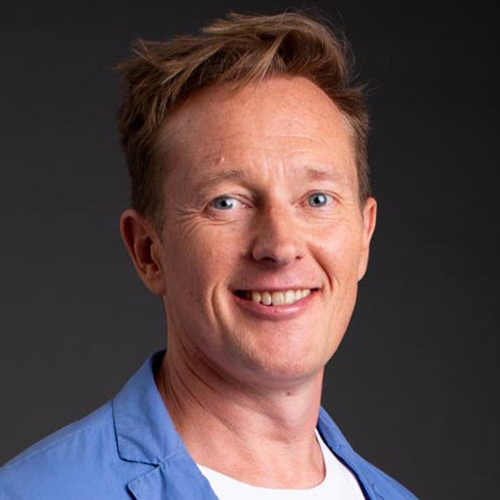
Ross Newton
Nukoko, UK
- Infos zum Unternehmen
- Hintergrund Gründer
- Warum brauchen wir Alternativen zu Schokolade?
- Probleme mit der Lieferkette
- Unsere Lösung und ihre Kerntechnologie
- Die Zutaten, die wir auf den Markt bringen
- Technische Aspekte im Vergleich zu Schokolade
- Wie man unsere Zutaten verwendet
- Fallstudie
- Zeitplan und wie man mit Nukoko zusammenarbeitet
Ross ist ein Wiederholungsgründer in der Schokoladenindustrie. Er gründete die britische Schokoladenmarke (Mighty Fine), die 2022 an The Serious Sweet Company LTD verkauft wurde.
Zusammen mit einem anderen Mitbegründer von Mighty Fine gründete er 2023 Nukoko, um die Probleme zu lösen, die er in der Kakaobranche aus erster Hand sah, als er an der Spitze seines vorherigen Unternehmens stand.
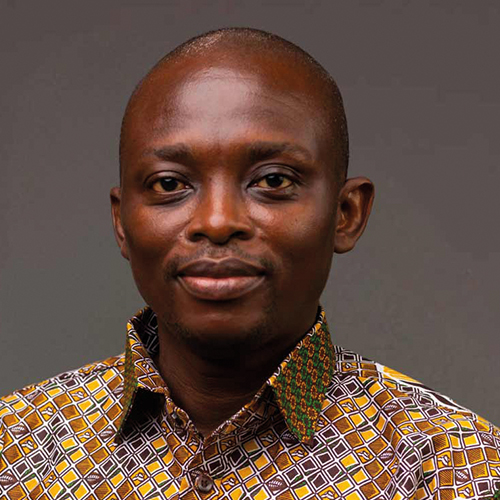
Dr. Francis Padi
Cocoa Research Institute of Ghana, GHA
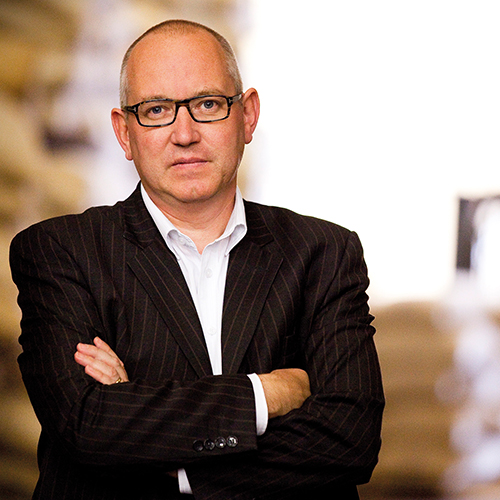
Karel Peleman
Barry Callebaut N.V., BE
Preisentwicklung auf dem Kakaomarkt
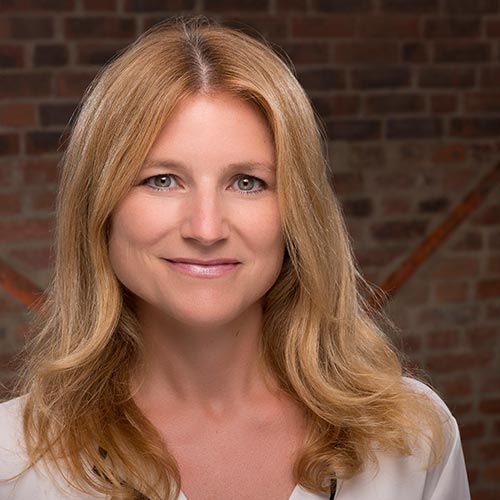
Annika Reuber
WOLKENdieb Designagentur
Was ist bei dem Design einer Schokoladenverpackung zu beachten?
Der Weg vom Briefing bis zum fertigen Produkt am POS.
Annika Reuber ist ein kreativer Kopf, der schon früh gemerkt hat, dass Sie einen künstlerischen Beruf ergreifen will.
Aufgewachsen in Xanten am Niederrhein, arbeitet Sie schon vor dem Studium in Agenturen und ist dort u.a. für 1Live im Messebau unterwegs. Während Ihres Studiums der visuellen Kommunikation an der FH Aachen baut Sie Ihren eigenen Kundenstamm auf, den Sie teilweise bis heute betreut.
Nach dem Studium 2002 arbeitet sie freiberuflich in grossen Agenturen und entwickelt dort Ihre Leidenschaft zum Packaging und Print.
Ab 2007 gründet sie eine (Gross)Familie mit 3 Jungs, wobei Sie weiterhin für Agenturen und eigene Kunden arbeitet. Die Vereinbarkeit von Familie und Job ist ihr unheimlich wichtig. Annika hat viele Menschen kennengelernt, die Tag und Nacht in Agenturen arbeiten und Ihr eigenes Leben an sich vorbeirauschen lassen.
„Beruf und Familie funktionieren für mich sehr gut zusammen, da sich beides gegenseitig bereichert. Aber ganz unter uns: Anstrengend ist es natürlich auch manchmal ;-)“..
Im Jahr 2014 gründet Sie Ihre eigene Agentur und ein Team und Büroräume sind gefragt. Sie kann Kunden wie z.B. „Lindt & Sprüngli GmbH“, „Henry Lambertz GmbH & Co. KG“ und „Haus Rabenhorst O. Lauffs GmbH & Co. KG“ und gewinnen. So entsteht die WOLKENdieb Designagentur in den Räumen der ehemaligen Tuchfabrik in Aachen.
Heute arbeiten in der Agentur Mitarbeiter in den Bereichen Kommunikationsdesign, Produktdesign, Illustration und Reinzeichnung.
Fragt man nach dem Agenturnamen, dann gibt es eine schnelle Erklärung:
WOLKEN: Probleme, die sich über Unternehmen zusammen brauen
DIEBE: weniger kriminelle „Reuber“, die Wolken „verschwinden“ lassen
Professionell, zielstrebig, aber leicht und unbeschwert – das ist ein WOLKENdieb und es macht Annika und ihrem Team diebischen Spaß.
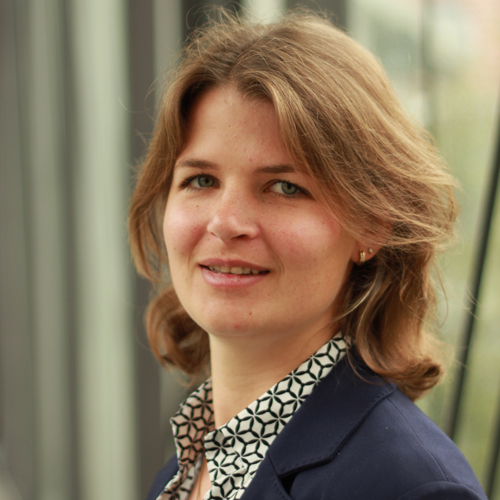
Dr. Isabell Rothkopf
Fraunhofer IVV, Freising
Die Herstellung von Pralinen ist ein traditionelles Handwerk. Um große Mengen für den Einzelhandel wirtschaftlich produzieren zu können, ist der Einsatz von Produktionssystemen notwendig. Dadurch ist es jedoch nicht mehr möglich, individuell auf Schwankungen bei Rohstoffen und sich ändernde Produktionsbedingungen zu reagieren. Um dennoch hohe Qualitätsstandards zu erfüllen, ist umfassendes Prozesswissen erforderlich, über das nur noch wenige Anlagenbediener verfügen. Der Vortrag soll einen Überblick geben, welche Daten relevant sind und mit welcher Form der Aufarbeitung sie genutzt werden können.
Isabell Rothkopf studierte am Karlsruher Institut für Technologie (ehemals Universität Karlsruhe TH) Chemieingenieurwesen Fachrichtung Verfahrenstechnik und promovierte 2023 in Lebensmitteltechnologie an der Technischen Universität München. Seit 2013 ist sie am Fraunhofer Institut für Verfahrenstechnik und Verpackung zunächst als Doktorandin tätig. 2017 trat sie die Nachfolge von Wolfgang Danzl und Gottfried Ziegleder in der Schokoladenforschung am Fraunhofer IVV und als Betreuer der Arbeitsgruppe Schokolade der Industrievereinigung für Lebensmitteltechnologie und Verpackung, IVLV, Freising an. Seit 2018 hat sie den Lehrauftrag »Schokoladentechnologie« der Hochschule Weihenstephan-Triesdorf. Ihre Forschungsschwerpunkte sind Kristallisation von Fetten, Fettmigration und Fettreif, Conchieren, Analytik und Verwertung/Verarbeitung von Schokoladenrohstoffen (Milchpulver, Nüsse, Kakao), Ölimmobilisierung in Aufstrichen und Füllungen.
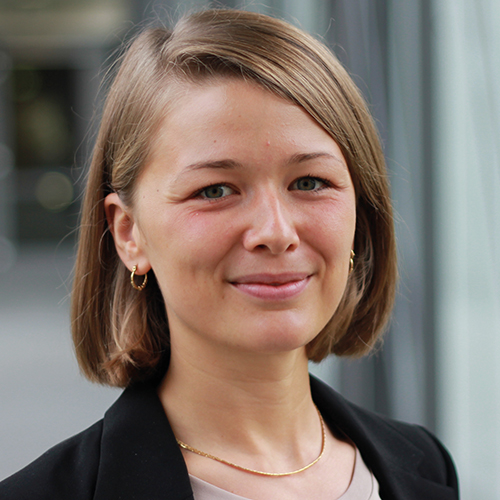
Hilke Schacht
Fraunhofer Institut für Verfahrenstechnik u. Verpackung, DE
Optimierung der Ölmobilität in Nussprodukten: Einfluss von Prozesstechnik und Partikelgröße
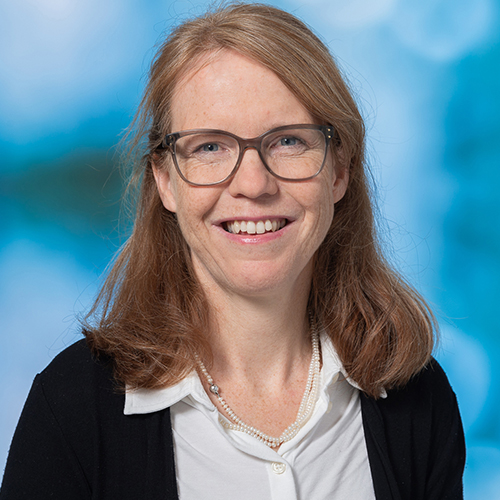
Prof. Dr. Susanne Miescher Schwenninger
Zürcher Hochschule für Angewandte Wissenschaften ZHAW, CH
In diesem Vortrag werden die Möglichkeiten von funktionellen Kulturen für die Fermentation von Kakaobohnen aufgezeigt. Dabei werden die erwünschten Eigenschaften, die die Kulturen mit sich bringen sollen, erläutert und gleichzeitig die Umsetzung in Laborversuchen präsentiert. Ein Fokus liegt bei antifungalen, prozessbeschleunigenden und aromabeeinflussenden Kulturen. Vergleichende Feldversuche in verschiedenen Ursprungsländern runden das Bild ab und lassen eine Aussage zum Potential aber auch zu Limitationen machen.
Prof. Dr. Susanne Miescher Schwenninger, ist nach ihrer akademischen Karriere an der ETH Zürich seit 2011 an der Zürcher Hochschule für Angewandte Wissenschaften (ZHAW) in Wädenswil, Schweiz, und leitet dort die Forschungsgruppe Lebensmittelbiotechnologie. Mit ihrem Team entwickelt sie mikrobielle Kulturen mit ausgewählten Stoffwechselaktivitäten für die Anwendung in Lebensmitteln mit Fokus pflanzliche Fermentationen. Dazu steht eine stetig wachsende Sammlung von derzeit > 14’000 Mikroorganismen zur Verfügung.
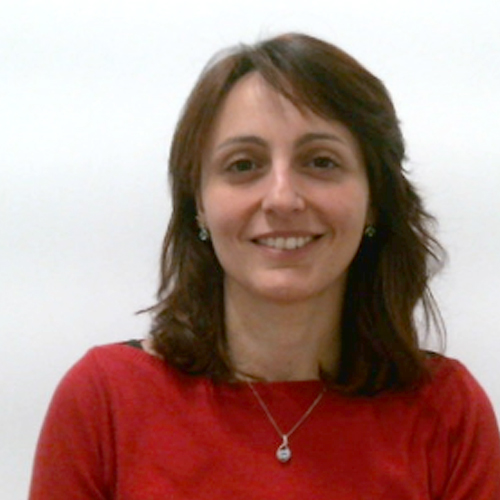
Elena Simone
European Research Council fellow at Politecnico di Torino, IT
Der EU-Schokoladenmarkt hatte im Jahr 2022 einen Wert von rund 45 Mrd. USD und wächst ständig weiter. [1] Diese steigende Nachfrage könnte jedoch erhebliche negative Auswirkungen auf die Umwelt haben, da 1 kg Schokolade ein globales Erwärmungspotenzial von 2,91 – 4,15 kg CO2-Äquivalent, einen Primärenergiebedarf von 30 – 41 MJ und einen Wasserfußabdruck von 31 – 63 l hat. 2] Der Hauptbeitrag zu diesem hohen CO2-Fußabdruck kommt von den Rohstoffen, insbesondere von Milchpulver, Kakaoerzeugnissen und Zucker. Aus diesem Grund haben die Schokoladenhersteller in letzter Zeit damit begonnen, neue und nachhaltige Lösungen zu erforschen, um diese Zutaten in der Schokolade zu ersetzen oder zu reduzieren. Kakaobutter und Milchfettäquivalente (CBE, MFE) sind Mischungen von Triglyceriden, die aus verschiedenen nachhaltigen pflanzlichen Quellen (z. B. Sonnenblume, Mangokern, Shea) gewonnen werden und diesen beiden Fetten in ihren physikalischen Eigenschaften ähneln. In dieser Arbeit untersuchten wir mit Synchrotron-Klein- und Weitwinkel-Röntgenstreuung in Kombination mit polarisierter Lichtmikroskopie und Differential-Scanning-Kalorimetrie das Kristallisationsverhalten ausgewählter kommerzieller CBEs und MFEs, sowohl allein als auch in Mischung mit Kakaobutter. Es wurden Kühlkristallisationsversuche in Abwesenheit und mit Scherung durchgeführt und die Anzahl und Art der gebildeten Polymorphe untersucht. Die Versuchsergebnisse wurden vor dem Hintergrund der chemischen Zusammensetzung der einzelnen Fettmischungen erklärt, die mittels Chromatographie bestimmt wurde. Dies ermöglichte ein Verständnis des Kristallisationsprozesses von CBE und MFE auf molekularer Ebene, das direkt mit dem von CB und MF verglichen werden konnte. Dieses Wissen ist für die rationelle Entwicklung neuartiger veganer Schokoladenrezepte unter Verwendung verantwortungsvoll hergestellter, pflanzlicher Fette von wesentlicher Bedeutung.
Prof. Elena Simone obtained her BSc and MSc in chemical engineering from the University of Pisa (Italy). After a short period as research assistant in Unilever R&D (Colworth, UK), in 2012 she started her PhD in Chemical Engineering at Loughborough University (UK). She graduated in 2015, and after a short postdoc between Loughborough and Purdue University (US), in 2016 she joined the school of Food Science and Nutrition at the University of Leeds (UK), as lecturer in Food Crystal Engineering. Since 2021 she has been associate professor and then full professor (2024) in chemical engineering and European Research Council fellow at Politecnico di Torino (Italy).
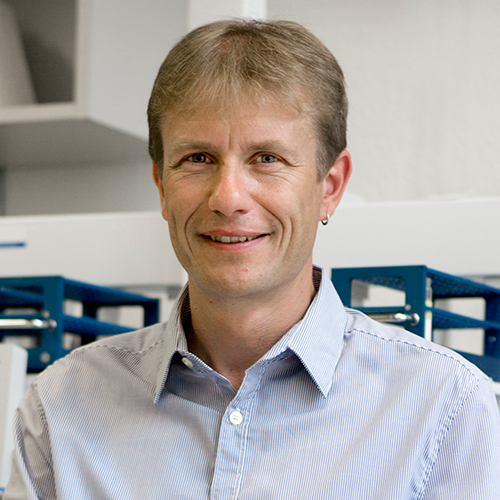
Prof. Dr. Johan Six
ETH Zürich, Dynamic Agroforestry, CH
Die nachhaltige Produktion von Kakao ist ein großes Anliegen der Verbraucher, der Schokoladenindustrie und nicht zuletzt der Kakaobauern. Die Frage, wie Kakao aus biophysikalischer, sozialer und wirtschaftlicher Sicht wirklich nachhaltig produziert werden kann, wird jedoch heftig diskutiert und ist nicht einfach zu beantworten. Ich werde die Kompromisse erörtern, die allen Kakaoproduktionssystemen innewohnen, und eine Vielzahl von Praktiken vorschlagen, um in Kakaosystemen so viel Nachhaltigkeit wie möglich zu erreichen.
Dr. Six promovierte 1998 in Bodenkunde an der Colorado State University. Seine Doktorarbeit wurde am Natural Resource Ecology Laboratory (NREL) durchgeführt. Seine Forschung konzentrierte sich auf die Mechanismen, die der Verringerung von Treibhausgasen durch Direktsaat zugrunde liegen. Dr. Six blieb von 1998 bis 2002 als Forschungswissenschaftler am NREL. Er leitete und war an zahlreichen Projekten beteiligt, in denen die Auswirkungen von Landnutzungsänderungen und -management auf die Treibhausgasflüsse in Agrar-, Grasland- und Waldökosystemen untersucht wurden. An der UCDavis (2002-2012) entwickelte Dr. Six diesen Forschungszweig weiter und konzentrierte sich dabei auf die Rückkopplungen zwischen den Bewirtschaftungsoptionen von Ökosystemen (z. B. Bodenbearbeitung, Deckfruchtanbau, Gründüngung, nachhaltige Landwirtschaft und Beweidung), dem globalen Wandel (z. B. erhöhter CO2-Gehalt und Klimawandel) und dem biogeochemischen Kreislauf. Seit 2013 leitet Dr. Six die Sustainable Agroecosystems Group an der ETH-Zürich, wo er das an der UCDavis entwickelte Forschungsprogramm weiterführt, allerdings mit einem stärkeren Schwerpunkt auf Landschaftsanalysen und globaler Ernährungssicherheit. Konkret untersucht er die komplexen Wechselwirkungen zwischen Boden (z.B. Struktur, Textur und Mineralogie), Pflanzen (z.B. Diversität, Nährstoffaufnahme und Wurzelwachstum), Bodenbiota (z.B. Pilze, Bakterien und Regenwürmer) und den Kohlenstoff- und Stickstoffkreisläufen in terrestrischen Ökosystemen, insbesondere in Agrarökosystemen. Sein allgemeiner Ansatz besteht darin, experimentelle Arbeiten von der Mikro- bis zur Landschaftsebene durchzuführen und sie anschließend mit Modellierungen zu verbinden, um sie auf die regionale und globale Ebene zu interpolieren und zu extrapolieren. Die Modellierung zielt auch darauf ab, Wissenslücken zu ermitteln, überprüfbare Hypothesen aufzustellen und die mechanistischen Grundlagen biogeochemischer Modelle zu testen. Darüber hinaus führt er viele Projekte in Zusammenarbeit mit Wirtschafts- und Sozialwissenschaftlern durch, um die Nachhaltigkeit und Widerstandsfähigkeit der landwirtschaftlichen Produktion und der Nahrungsmittelsysteme ganzheitlich zu bewerten.
Dr. Six ist Chancelor’s Fellow der University of California – Davis, Fellow der American Association for the Advancement of Science, Philippe-Duchaufour-Medaillengewinner in Bodenkunde der European Geoscience Union, Distinguished Ecologist der Colorado State University und steht auf der Liste der 2015, 2016, 2017 und 2019 hoch zitierten Forscher des Web of Science.
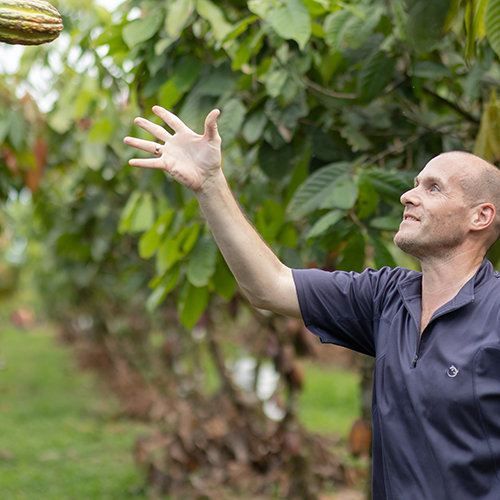
Hauke Will
Alfred Ritter GmbH & Co. KG
- Reasons to run your own Cocoa Farm as a Chocolate Manufacturer
- Keyelements to be considered
- How to establish a farm
- Running the farm and making it resillient (economically and ecologically)
- Challenges and success on the journey
Thanks to his long time experience in the Chocolate and Cocoa World, Hauke Will knows the Supply and Value Chain of this most important raw material for high quality chocolate very well. From the beginning as a food engineer with the passion to develop chocolate and bring innovation to consumer he combines the indulgence of chocolate with its necessary technology and the understanding of the quality aspects in cocoa. After his degree in Business Innovation he started to setup the Ritter Sport Cocoa Farm “El Cacao”. With “El Cacao” Ritter Sport shows, how a modern sustainable Cocoa plantation could look like. With the spirit of innovation and the deeply anchored culture of growing cocoa in Nicaragua, it is possible to run these role model: Growing Cocoa in an innovative matter – in harmony with people and nature.
Ritter Sport a family company, its chocolate is traded in more than 100 countries worldwide with an yearly turnover of nearly € 500 Mio.. Founded 1912 in Stuttgart; 1990 founded the agroforestry project CACAONICA in Nicaragua also to improve the living conditions of the families dependent on agriculture and, at the same time, reduces the destruction of the rainforest; until today there are long lasting partnerships with more than 30 cooperatives; 2008 started with the first organic variety; 2012 started building up a plantantion of its own in Nicaragua and becomes involved in the sustainable cultivation of cocoa. One of the largest cocoa cultivation areas in the world is developed. Rastreability Concept: From Central and Southern America and Africa to Waldenbuch, and from there to wherever you are in the world, Ritter Sport let you know where their cocoa comes from. In 2018 we they became the first big manufacturer of chocolate bars to use 100% certified sustainable cocoa.
“ For us, the RITTER SPORT brand is both duty and capital in one: We ensure that only flawless raw materials are used in our production facilities and only products worthy of RITTER SPORT reach the customer. Our goal is to do business in harmony with people and nature. In so doing, we use our ressources effectively and deploy our workforce optimally. We attempt to waste as little as possible. We successfully initiate and implement measures that have a positive effect on people who depend on growing cocoa and other raw ingredients. We constantly measure and evaluate our environmental impact. We favour and use renewable energy whenever and wherever practical. – We implement sustainable improvements to our production technology even if they are up to 10% more expensive than previous methods. Although investment in this area initially puts strain on revenue, we are convinced that timely intervention pays off over the long term.
Sustainability activities are considered when selecting suppliers and service providers abroad.”
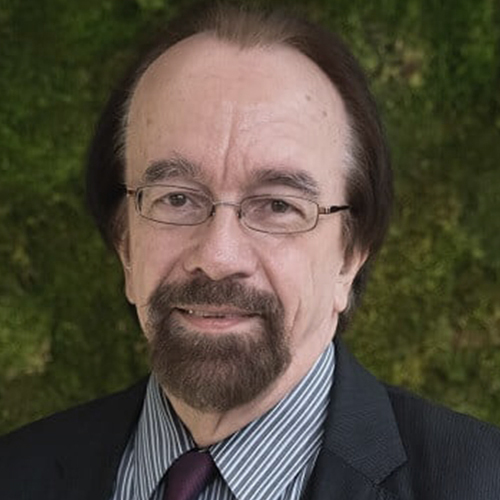
Prof. em. Dr. Erich Windhab
ETH Zürich Laboratory of Food Process Engineering, CH
- Neue Einblicke in das Verhalten von Schokolade bei dessen Beanspruchung im Mundraum durch Differenzierung von rheologischen und tribologischen Aspekten
- Industrielle Inline-Detektion der Kristallisation beim Abkühlen von gefüllten Schokoladenprodukten
- Optimierung der Süße- und Aromawahrnehmung durch strukturmaßgeschneiderte 3D-gedruckte Schokoladenoberflächenstrukturen
Erich Windhab studierte Chemieingenieurwesen und Maschinenbau an der Technischen Universität Karlsruhe (Deutschland), wo er auch promoviert wurde. Während seiner Promotion gründete er sein eigenes Ingenieurbüro. Von 1986-92 war er am Aufbau des Deutschen Instituts für Lebensmitteltechnik (DIL) als dessen Forschungsdirektor beteiligt. Von 1988-1992 war er auch als PD an der Technischen Universität München für Fluiddynamik und Rheologie tätig. Im Jahr 1992 wurde er ordentlicher Professor für Lebensmittelverfahrenstechnik an der ETH Zürich. Seit Ende 2022 ist er emeritierter Professor, der immer noch mit der ETH zusammenarbeitet und die Plattform Lebensmitteltechnologie der Schweizerischen Akademie der Technischen Wissenschaften (SATW) leitet. Er wurde mit einer Reihe renommierter internationaler Auszeichnungen geehrt, darunter die Blaise Pascal Medaille der Europäischen Akademie der Wissenschaften. Im Jahr 2021 erhielt er zudem den EFFoST Lifetime Achievement Award. Erich Windhab veröffentlichte mehr als 480 von Experten begutachtete Artikel, meldete ca. 95 Patente an, initiierte/gründete mehr als 10 Start-up-Unternehmen und ist Mitglied in industriellen und staatlichen Beratungsgremien.

Pascal Wullschleger
Hochschule Luzern- Informatik, CH
Die KI verändert die Art und Weise, wie die Industrie Rezepte und Prozesse entwickelt und optimiert. In dieser Diskussion werden wir die Technologien, die diesen Wandel vorantreiben, anhand von Beispielen aus dem Lebensmittel- und Produktionssektor näher beleuchten. Wir werden auch die Herausforderungen und Chancen erkunden, die mit der Nutzung von KI verbunden sind, und ihre potenziellen Auswirkungen auf den Herstellungsprozess von Schokolade betrachten.
Pascal Wullschleger promoviert in Informatik mit Fokus auf Natural Language Processing an der Dublin City University und der Hochschule Luzern. Seit 2019 arbeitet er an Projekten zum angewandten maschinellen Lernen mit Rezept- und Lebensmitteldaten.
